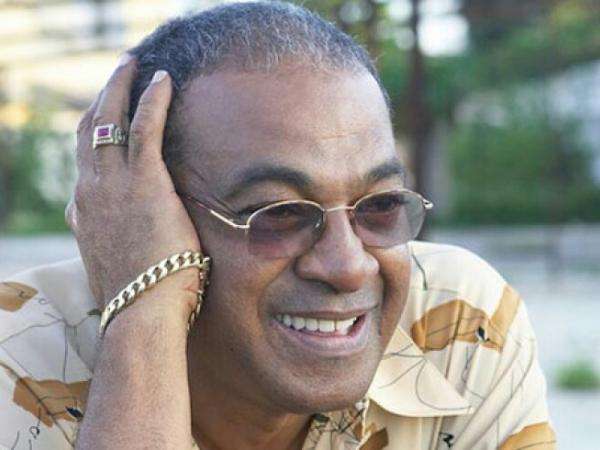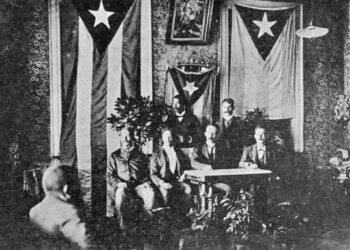With a security backed by decades of rhythms and chords, César (Pupy) Pedroso confesses he is currently living in one of his best seasons as a pianist and composer and stands, without doubt, as one of the leading exponents of salsa in Cuba. His style has a distinctive seal that isn’t newly created, because the Master had the chance to shine on stage with Los Van Van for over thirty years.
However, his friend Juan Formell always assured him: he could create without fear of competition, a unique orchestra. The trust was absolute; talent, complete. Finally, the decision to Pupy came in 2001 with the creation of Pupy y los que Son Son. Regarding this orchestra that enhances the sound of Cuban salsa, César talked unreservedly and openly with OnCuba.
Why did you decide to separate yourself from Los Van Van and create a new group?
The idea came from albums I made separately while working with Los Van Van. The first was called Forbidden Fruit, released in the US under the name Best of Cesar Pedroso. It was developed with hits of my authorship and talents as Omara Portuondo, Raul Planas, Caridad Cuervo, Rolo Martínez, Isaac Delgado, Mario Rivera, among other artists, were present.
Then I made a CD with young talents that were rising, including Tirso Duarte, Jose Gomez, and many more. By the third album, with songs like La voluminosa, El vecino se mudó and Juégala, I valued my job seriously and the possibility to take another step in my artistic life. I left Los Van Van, but always kept the best relations with Juan Formell. Since then I’ve done a whole new repertoire.
The orchestra has been growing and I think my background in Los Van Van has helped tremendously. The first CD, Qué cosas tiene la vida (2002), was very successful. The following ones have also given us a lot of prestige. The group has been in the forefront of the country musical in terms of interpretive themes, liking of the dancer and the public’s preference.
Sometimes people say that you have created a new style of timba. Do you think that statement is correct?
In Los Van Van there were two styles that harmonized fine, Juan Formell and mine. The tumba’o that I use now is practically the same as I always did. However, this statement is given by the fact that I tried to separate myself musically from the harmonic standpoint and movements related to the rhythm. I’m dabbling without losing the essence of my previous work.
What impact did Juan Formell have in your training as an artist?
He was my true teacher, I learned a lot from all points of view; for example, to have patience with musicians, orchestrate, compose … Besides Formell there are two people who helped in my development as a person: my father and Elio Reve. The latter was very sentimental and made your problems his own.
What does Juan Formell mean for Cuban culture?
I think he was the best thing that could have happened to the music of our country in the last sixty years. His loss has meant a lot because he succeeded in a dead time, where there was not an international record label that could support it, nor the technological advances of other countries.
The great merit of Formell and Los Van Van was to succeed with virtually no resources and support, without access to international events such as the Premio Lo Nuestro. The Grammy achieved was a resounding success. If he had had the backing of an international record label, achievements would have been higher. I think it’s difficult for other composer to achieve the quality of his catalog and there are still songs unreleased.
Pupy y los que Son Son has released a new album: Unlimited
It is made without limitations in style. I wanted to explore other sounds like the merengue by Eliades Ochoa, get closer to jazz … Also I took up a chorus of Ricardo Diaz and gave opportunities to other singers and authors.
Looking also to make an instrumental CD?
Right. And it will be a work with Bis Music. It is a simple instrumental album without complexities, which will pay tribute to composer pianists that are rarely mentioned, but have made great contributions to Cuban music: Joseíto González, Rubén González, Lili Martinez, Felo Bergaza, Ernesto Duarte … They’ll be guest artists the likes of Julito Padrón, Angel Bonne, and others.
Pupy y los que Son Son starts 2015 with a very sporty vocation. How do you get to the subject of the Pan American Games?
The song is called Toronto 2015 and was a proposal which I did for the next Pan American Games. The video is done and I hope you like it.
What do you think about the salsa that is done in Cuba today?
I think we are recovering the possibility that Cuba is more valued our own music. There are young working hard as Alexander Abreu, Maykel Blanco … They are joined by consecrated artists and orchestras. But still we are lacking support in every way. We cannot be selling what is not ours when sold ours abroad.
Do you notice much difference between the Cuban salsa made abroad and the one you do here?
The basis is the same but, for example, is done in the United States increases the jazz notes. Many singers have their style as Marc Anthony, but if you listen to Gilberto Santa Rosa you realize that his style is very similar to our singers of the fifties of the last century. They know they are defending the Cuban music, with mixtures thereof. Salsa is a big family, and through it endures our music internationally. The Master Tito Puente used to say that the day that Cubans could freely enter the United States, they would have to go to school.










